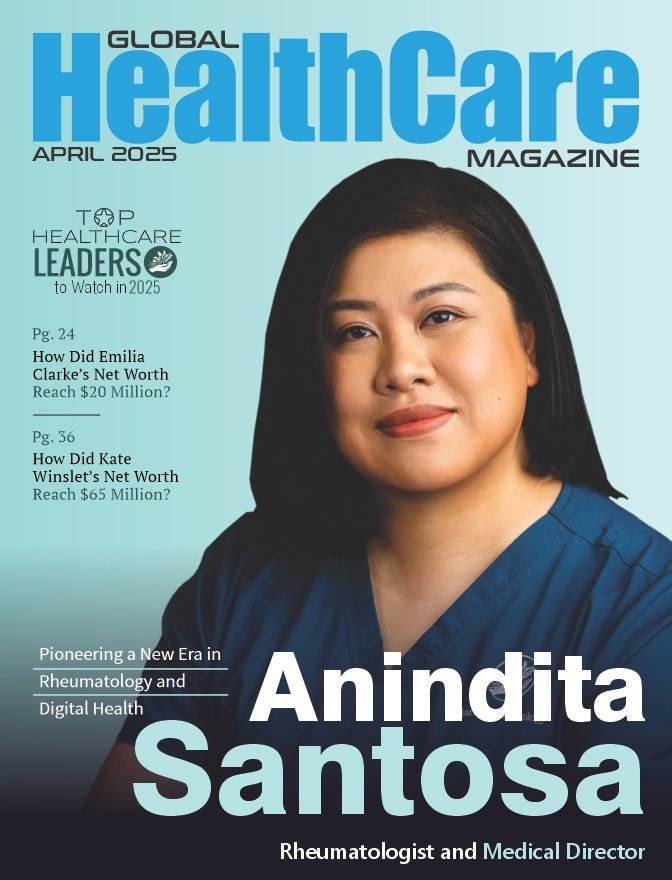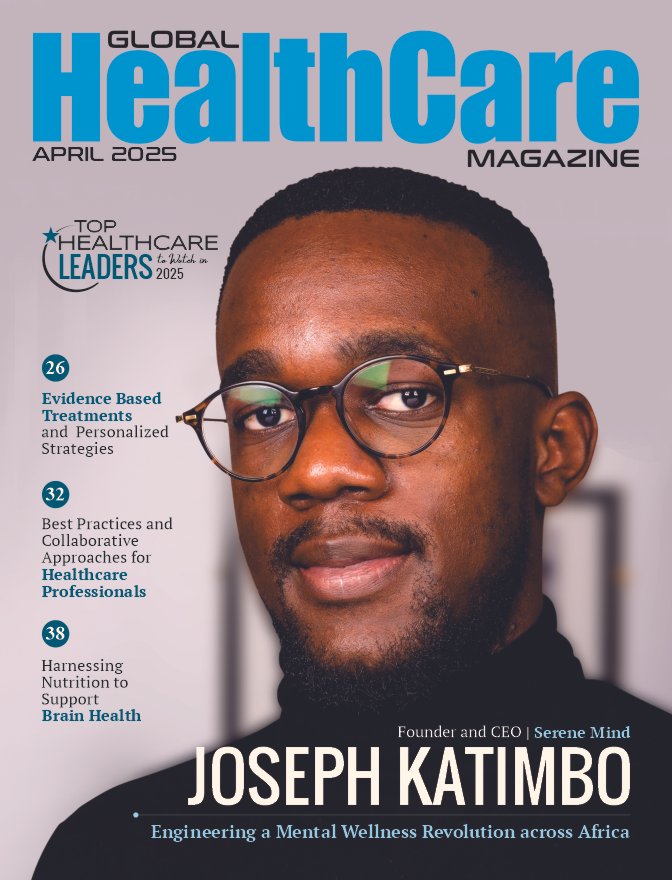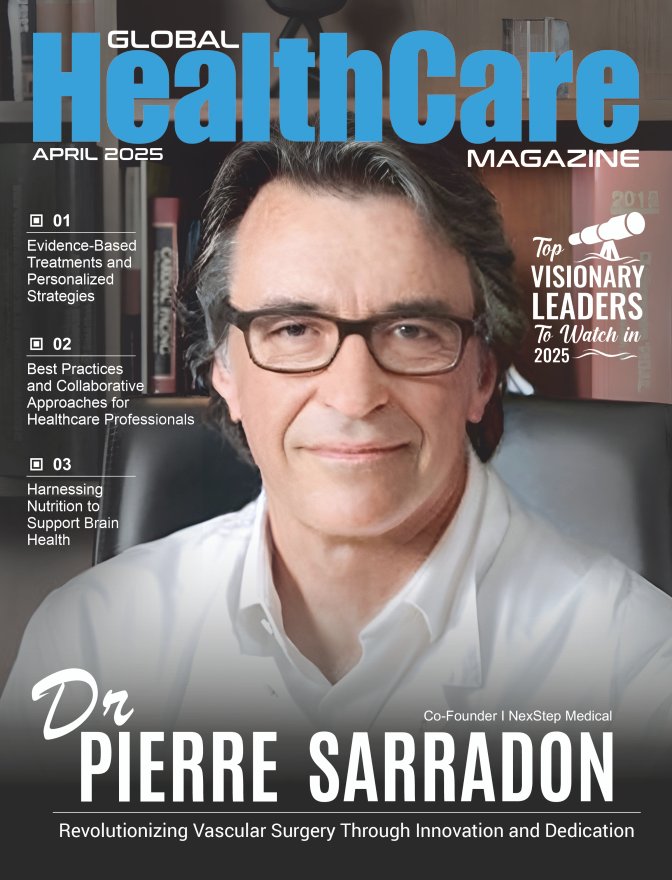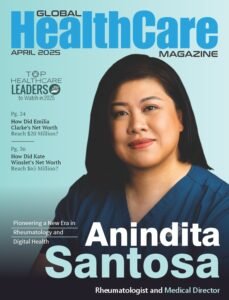Dr. Ezzaddin Al Wahsh is a renowned physician and clinical informatics specialist with a rich background in both healthcare technology and internal medicine. An alumnus of the Mayo Clinic, Al Wahsh has spent over a decade pushing the boundaries of clinical informatics and artificial intelligence (AI) applications in healthcare. His career is distinguished by a mission to blend human connection with technological advancement to optimize patient outcomes. After earning his MD from the University of Jordan Faculty of Medicine and an MBA in Global Innovation from California State University, East Bay, Dr. Ezzaddin Al Wahsh has continuously contributed to the fields of medicine and AI, ensuring that his work not only advances scientific understanding but also makes a positive difference in patients’ lives.
Early Beginnings and Influences
Can you tell us about your early beginnings and what influenced your path into medicine and technology?
Growing up, I was always fascinated by the interplay between science and human well-being. My interest in medicine stemmed from a desire to understand the complexities of the human body and to make a tangible impact on people’s lives. In my formative years, I was already experimenting with basic computer programming, which laid the groundwork for my later interest in technology. This dual passion for medicine and technology naturally led me to explore clinical informatics—a field that perfectly marries these interests by using technology to improve healthcare delivery.
Educational Journey and Professional Development
What was your educational journey like, and how did it shape your professional development?
My educational journey was quite a diverse one, beginning with my medical degree at the University of Jordan, followed by my specialization in internal medicine. I then pursued an MBA in Global Innovation in California, which broadened my perspective and equipped me with strategic business acumen. This combination of medical and business education allowed me to view healthcare challenges through a multifaceted lens and develop innovative solutions that address real-world problems.
At the Mayo Clinic, I completed a fellowship in Clinical Informatics. There, I worked with a team of scientists to develop frameworks for AI products in healthcare, ensuring their ethical and responsible deployment in clinical settings. This experience was pivotal, as it taught me the importance of integrating cutting-edge technology with compassionate patient care.
Overcoming Challenges and Learning from Feedback
What challenges have you faced in your career, and how have you overcome them?
One of the greatest challenges has been navigating the rapid pace of technological change in healthcare. It requires not only keeping up with new advancements but also critically assessing their applicability and impact on patient care. Additionally, implementing AI solutions in clinical settings involves overcoming skepticism and resistance to change. To address these challenges, I have focused on clear communication and empathy, ensuring that stakeholders understand the benefits of these technologies.
Feedback, both positive and critical, has been invaluable in overcoming challenges and enhancing my professional growth. By listening to others’ perspectives and reflecting on their insights, I have been able to refine my approaches and improve my communication styles. Embracing feedback has also helped me build stronger relationships based on trust and mutual respect.
Strategy for Innovation and Maximizing Value
How do you approach innovation and technology implementation in healthcare to ensure maximum value?
My approach to innovation revolves around identifying real needs and ensuring that technological solutions align with these needs. It’s crucial to assess both the financial and non-financial impact of technology. For instance, while advanced imaging technologies offer great diagnostic accuracy in settings where these are not feasible, practical alternatives must be considered, such as digital stethoscopes in outpatient environments. Similarly, in AI consulting, it’s essential to evaluate both technical feasibility and the return on investment to ensure that AI enhances efficiency rather than simply adding complexity.
Building a Reputation and Cultivating Trust
What strategies have you used to build and maintain your professional reputation?
Honesty and transparency form the bedrock of my professional reputation. Being upfront about what I know, my limitations and my areas for improvement has helped create trust with clients, patients, and colleagues. I also prioritize teamwork, respecting diverse perspectives, and fostering collaboration. These principles ensure that all projects benefit from collective strengths and shared commitment.
Additionally, I have always been committed to lifelong learning and engagement. Staying informed about industry developments and actively participating in discussions, conferences, and publications help reinforce my credibility and ensure that my knowledge remains relevant and impactful.
Expertise in Clinical Informatics and Achievements
Dr. Al Wahsh, could you highlight some of your key achievements in clinical informatics and how they have impacted healthcare?
Certainly, during my tenure at the Mayo Clinic, I developed AI product lifecycle oversight tools, including model cards that validate machine learning in healthcare. This work is critical as it ensures that AI models are safely and effectively integrated into clinical practices. I also led the evaluation and enhancement of clinical decision support systems, which helped in mitigating alert fatigue among clinicians and improving system efficiency.
Additionally, my role as an advisor at AI hackathons has allowed me to provide clinical guidance for AI-driven healthcare solutions. One significant project was leading the implementation of an AI triage tool for ENT departments, which dramatically improved workflow efficiency by optimizing the way patient data was managed and analyzed.
Vision for the Future of Healthcare Technology
What is your vision for the future of healthcare technology, particularly in the field of clinical informatics?
I envision a healthcare landscape where technology and human expertise are perfectly integrated to deliver personalized care. The future lies in AI tools that not only enhance diagnostic accuracy but also streamline administrative processes, allowing healthcare professionals to focus more on patient interaction rather than paperwork.
Furthermore, I believe in the potential of digital health technologies to extend healthcare beyond traditional settings. This includes leveraging telemedicine and remote monitoring tools to ensure that patients in underserved areas have access to quality care. My vision is also deeply rooted in ensuring that these technologies are implemented ethically and responsibly, preserving patient privacy and data security at all times.
Cultivating a Professional Reputation
How have you managed to cultivate and maintain your professional reputation in such a rapidly evolving field?
Building a strong professional reputation is about consistency and integrity. Throughout my career, I have focused on open communication and transparency. Whether working with colleagues or patients, being clear about what I know and acknowledging the areas I am still learning about has helped build trust. I also emphasize collaboration and respect, understanding that the best outcomes are achieved through teamwork.
Moreover, actively engaging with the medical and scientific communities through conferences, publications, and educational initiatives has allowed me to stay informed and contribute meaningfully to industry advancements. Maintaining a presence in these circles not only reinforces my credibility but also keeps me connected with evolving trends and technologies.
The Role of Feedback in Professional Growth
How do you approach feedback, and how has it contributed to your professional growth?
Feedback is an invaluable part of my professional development. I view it as an opportunity to learn and grow, using it to refine my communication style and approaches. Even when feedback is challenging to hear, I remind myself that it is a reflection of my impact and a chance to improve.
This mindset has helped me not only address my blind spots but also strengthen relationships built on trust and mutual respect. Acknowledging constructive criticism has been pivotal in evolving my career and ensuring that I continue to meet and exceed the needs of patients and colleagues alike.
Balancing Transparency with Privacy
Transparency is crucial in building trust, but how do you balance it with privacy in professional relationships?
This balance is indeed crucial. Transparency fosters trust, yet respecting privacy is equally important. I prioritize maintaining confidentiality, especially as a physician; it reflects integrity and builds trust. If certain information cannot be shared, I explain the reasons clearly, which in turn builds respect and reinforces ethical boundaries.
The guiding principle is sincerity—ensuring that all interactions are conducted with a commitment to mutual benefit and respect. This approach not only strengthens professional relationships but also ensures that privacy is never compromised for the sake of transparency.
In conclusion, Dr. Ezzaddin Al Wahsh continues to inspire through his innovative work in clinical informatics and healthcare technology. His dedication to patient care, ethical responsibility, and lifelong learning highlight his prominent role in advancing the field. His commitment to blending human compassion with technological advancement underscores the positive impact he strives to make in the healthcare industry.
Also Read: Dr. Ann Schutt-Aine is Advancing Women’s Health Through Innovation and Education



















